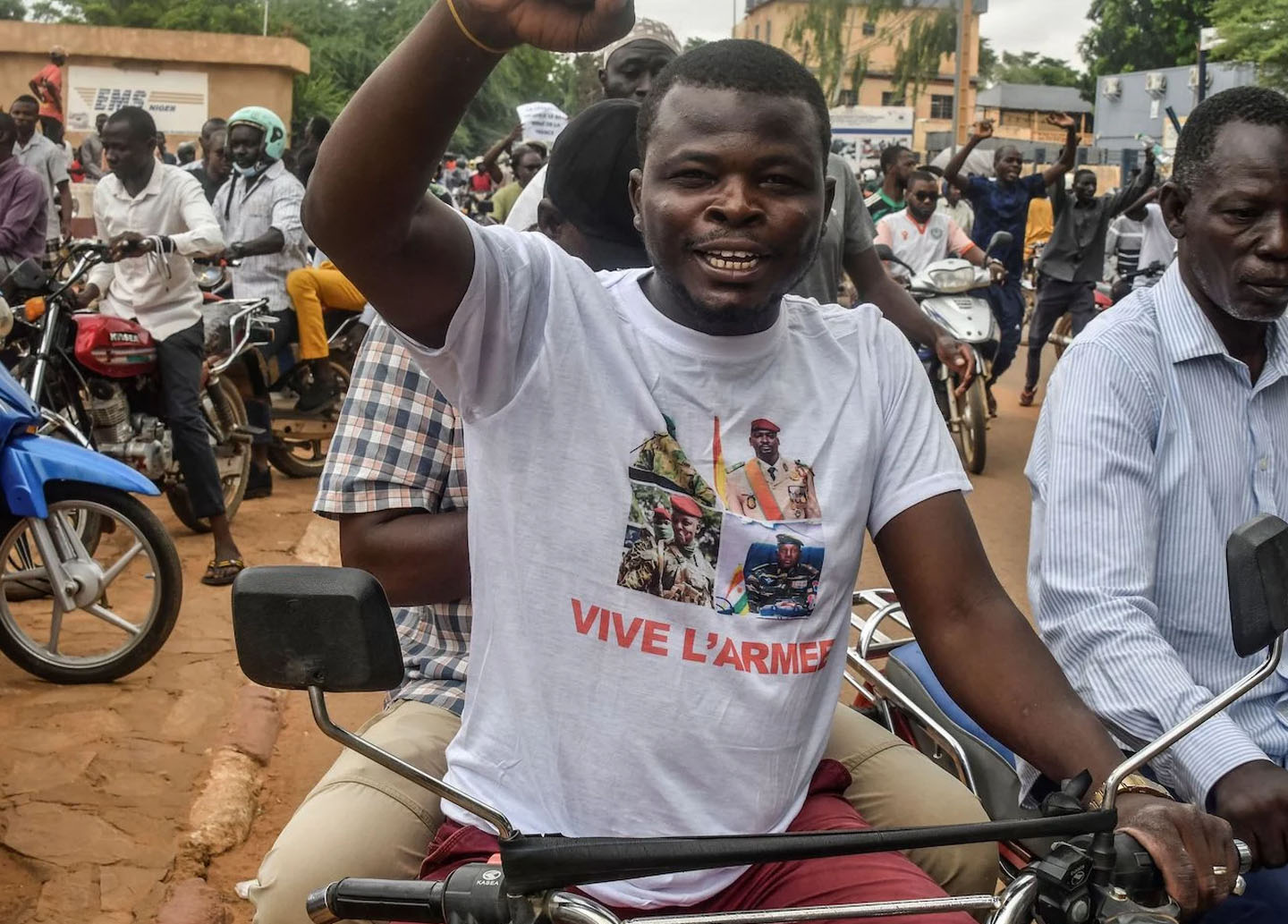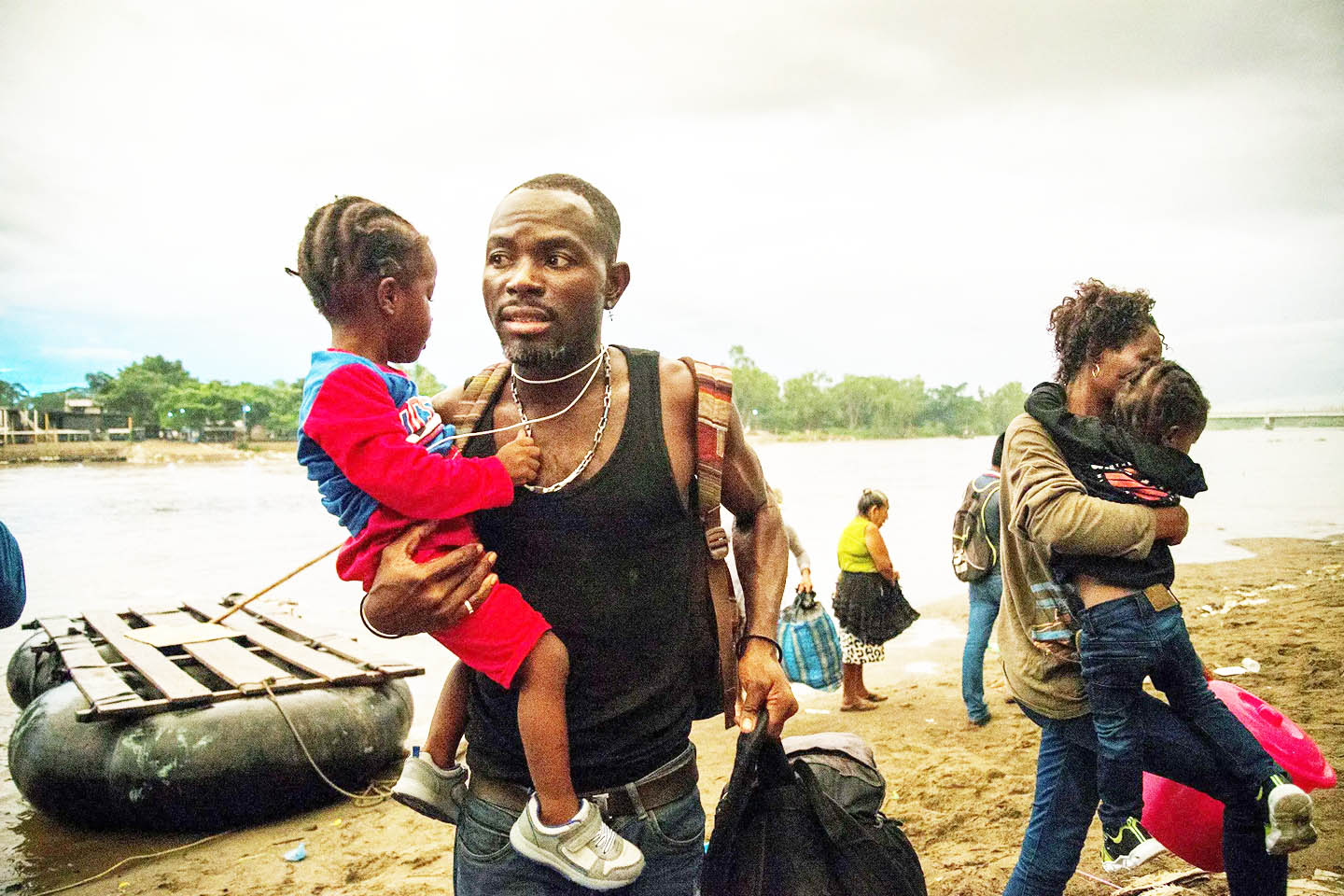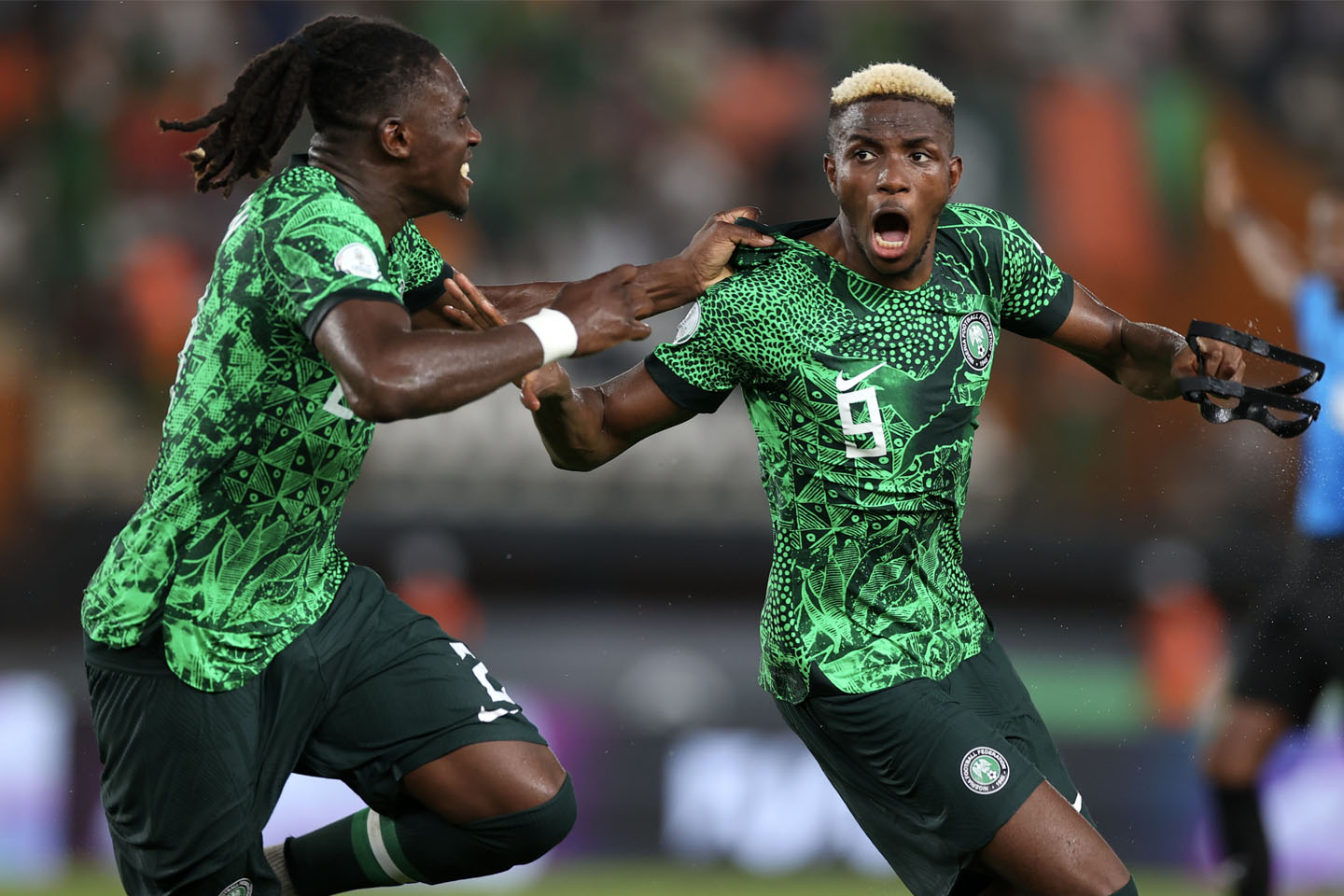Africa
African players in Europe: Champion Mane sets up Liverpool winner

- Senator Cory Booker Leads a Congressional Delegation to Nigeria - March 30, 2024
- TSU Announces 2024 Annual Communication Week - March 25, 2024
- Breakforth Summit Houston 2024“Worship & Healing Encounter” debuts in Houston - March 25, 2024
Africa
Niger, Mali and Burkina Faso agree to create a joint force to fight worsening violence

BAMAKO, Mali (AP) — A joint security force announced by the juntas ruling Mali, Niger and Burkina Faso to fight the worsening extremist violence in their Sahel region countries faces a number of challenges that cast doubt on its effectiveness, analysts said Thursday.
Niger’s top military chief, Brig. Gen. Moussa Salaou Barmou said in a statement after meeting with his counterparts Wednesday that the joint force would be “operational as soon as possible to meet the security challenges in our area.”
The announcement is the latest in a series of actions taken by the three countries to strike a more independent path away from regional and international allies since the region experienced a string of coups — the most recent in Niger in July last year.
They have already formed a security alliance after severing military ties with neighbors and European nations such as France and turning to Russia — already present in parts of the Sahel — for support.
Barmou did not give details about the operation of the force, which he referred to as an “operational concept that will enable us to achieve our defence and security objectives.”
Although the militaries had promised to end the insurgencies in their territories after deposing their respective elected governments, conflict analysts say the violence has instead worsened under their regimes. They all share borders in the conflict-hit Sahel region and their security forces fighting jihadi violence are overstretched.
The effectiveness of their security alliance would depend not just on their resources but on external support, said Bedr Issa, an independent analyst who researches the conflict in the Sahel.
The three regimes are also “very fragile,” James Barnett, a researcher specializing in West Africa at the U.S.-based Hudson Institute, said, raising doubts about their capacity to work together.
“They’ve come to power through coups, they are likely facing a high risk of coups themselves, so it is hard to build a stable security framework when the foundation of each individual regime is shaky,” said Barnett.
—-
Associated Press writer Chinedu Asadu in Abuja, Nigeria contributed.
- Senator Cory Booker Leads a Congressional Delegation to Nigeria - March 30, 2024
- TSU Announces 2024 Annual Communication Week - March 25, 2024
- Breakforth Summit Houston 2024“Worship & Healing Encounter” debuts in Houston - March 25, 2024
Africa
Mexican Authorities say they saw a huge increase in migrants from Africa and Venezuela in 2023

Mexican authorities say they saw a huge increase in the number of migrants from Africa and Venezuela entering the country in 2023.
Those migrants generally enter Mexico from Central America, and cross the country in a bid to reach the U.S. border.
Mexico’s Interior Department said year-end figures showed that nine times more migrants from Africa entered Mexico in 2023, with numbers rising from 6,672 in 2022, to 59,834 in 2023.
The report also showed the number of migrants from Venezuela more than doubled last year, rising from 96,197 in 2022 to 222,994 in 2023.
In part, that may reflect more rapid and more numerous movements of migrants through the jungle-clad Darien Gap that connects South America to Panama.
Smugglers are moving migrants more quickly through the dangerous route, which last year was traversed by over half a million migrants. Once in Panama, migrants make their way through Central America to Mexico.
Overall, the number of all irregular migrants found in Mexico in 2023 rose by 77%, going from 441,409 in 2022 to 782,176 last year.
- Senator Cory Booker Leads a Congressional Delegation to Nigeria - March 30, 2024
- TSU Announces 2024 Annual Communication Week - March 25, 2024
- Breakforth Summit Houston 2024“Worship & Healing Encounter” debuts in Houston - March 25, 2024
Africa
Nigeria vs South Africa: AFCON prediction, kick-off time, TV, and live stream

A meeting of two imperious defences will decide the first entrant to the 2023 Africa Cup of Nations final when South Africa and Nigeria meet on Wednesday.
The Super Eagles have conceded just one goal at this AFCON and dispatched Angola in a tight game to qualify for the semi-finals.
But Bafana Bafana matched their run of four consecutive clean sheets as goalkeeper Ronwen Williams delivered the heroics in their penalty shootout win over Cape Verde.
Only once since their last Cup of Nations title, which came just over a decade ago, have Nigeria reached the last four – and they have lost five of their last six AFCON semi-finals.
South Africa’s wait stretches back even further, with no title since 1996 and this their first run to the last four since 2000.
Date, kick-off time and venue
Nigeria vs South Africa is scheduled for a 5pm GMT kick-off on Wednesday, February 7, 2024.
The match will take place at Stade de la Paix in Bouake.
Where to watch Nigeria vs South Africa
TV channel: In the UK, the game will be televised live on BBC Two, with coverage starting at 4.30pm GMT, as well as Sky Sports Main Event and Premier League.
Live stream: Sky subscribers can also catch the contest live online via the Sky Go app while the game will also be shown for free via the BBC Sport and iPlayer portals.
Live blog: You can follow all the action on matchday via Standard Sport’s live blog.
What we know
♦ Nigeria striker Victor Osimhen was taken off late on against Angola with an abdominal injury and he did not join the rest of the squad in flying out to Bouake on Monday evening.
A team statement assured that he could yet be released to travel on Tuesday if he passes medical checks.
Hugo Broos has a settled line-up for South Africa, with the defence entirely made up of Mamelodi Sundowns players.
However, after failing to score against Cape Verde he could tinker with the attack.
♦ Both teams have been outstanding defensively throughout the tournament and it feels as though a single goal will prove the difference in this game.
Head to head (h2h) history and results
Super Eagles captain William Troost-Ekong scored an 89th-minute winner when Nigeria knocked Bafana Bafana out of the 2019 Cup of Nations quarter-finals, which was these two sides’ last meeting.
Nigeria wins: 7
South Africa wins: 2
Draws: 5
Nigeria vs South Africa match odds
Nigeria to qualify: 1/2
South Africa to qualify: 7/1
- Senator Cory Booker Leads a Congressional Delegation to Nigeria - March 30, 2024
- TSU Announces 2024 Annual Communication Week - March 25, 2024
- Breakforth Summit Houston 2024“Worship & Healing Encounter” debuts in Houston - March 25, 2024




















